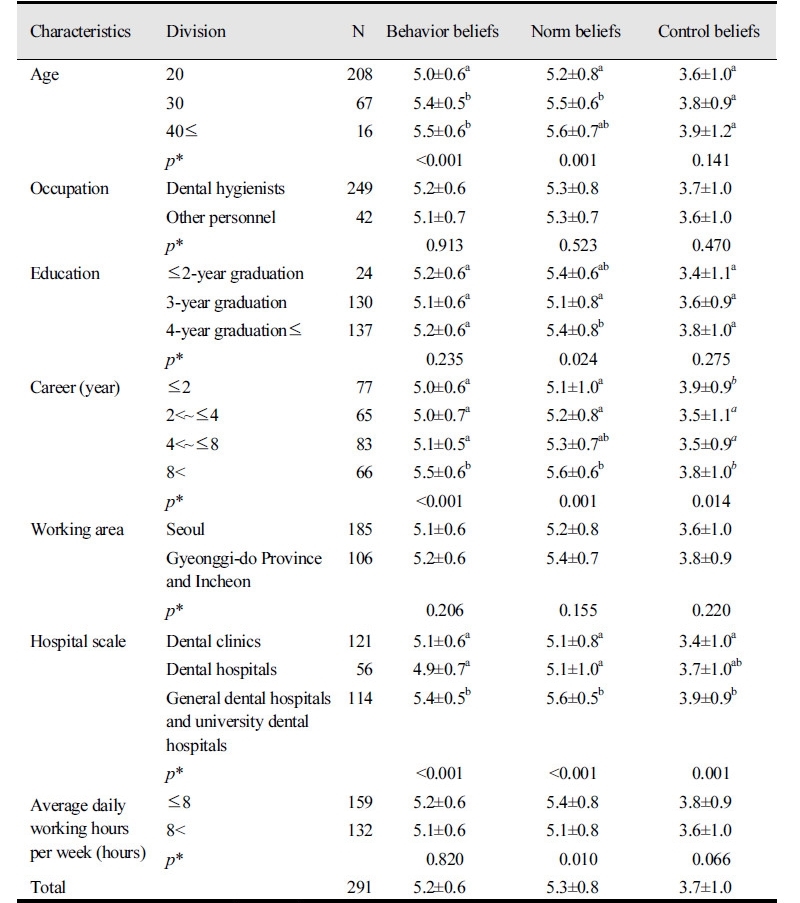Abstract
This study was conducted to identify the correlation between belief in hand hygiene, related hand hygiene activities and performance rates among dental staff.This study was based on the evaluation of 329 dental practitioners, including dental hygienists who work at dental clinics, dental hospitals, general and university dental hospitals in Seoul, Gyeonggi-do Province, and Incheon. The questionnaire consisted of a total of 46 questions, including 7 questions on general characteristics, and 25 questions on hand hygiene beliefs, and 5 questions on hand hygiene activities, and 9 questions on hand hygiene practices. This study used 291 subjects for the final analysis, excluding subjects who had provided incomplete or inappropriate responses to the questionnaire. The collected data were analyzed using an independent t-test, ANOVA, x2 test, correlation analysis, and multiple linear regression analysis, where p-values of <0.05 were considered statistically significant.Longer clinical career was associated with a significant increase in behavior and norm beliefs, but no sequential difference in control beliefs. The hand hygiene performance was higher in staff at larger hospitals after contact with pollutants and contaminated environments. Higher age was associated with a significant increase in hand hygiene performance rates, but profession was not statistically significant in the performance rate of hand hygiene. The hand hygiene performance rate was ranked higher among those with average work hours per week of greater than 8 hours followed by those who worked fewer than 8 hours. Fewer work hours per week, a stronger belief in hand hygiene, less frequent exposure to contaminated environments, and a greater number of hand hygiene performance had a positive effect on higher hand hygiene performance rates. In order to increase the hand hygiene performance rate of dental practitioners, it is considered that required time for hand washing should be ensured sufficiently. Proper usage of hand sanitizers should also be promoted efficiently.
Figures & Tables

Table 1. Relationship between general characteristics and hand hygiene beliefs among dental staff Unit: Mean±SD (N=291)


